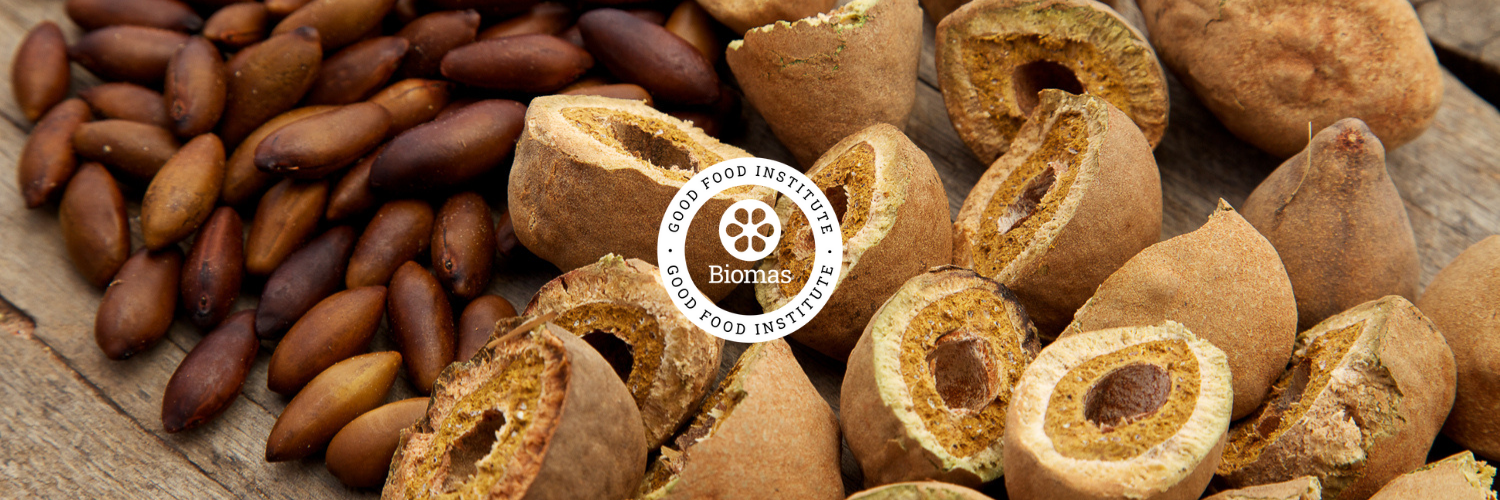GFI is funding research to develop alt protein ingredients from Brazilian plant species

Republished from GFI Brazil.
In Brazil, a new species of fauna and flora is discovered every three days. With such an abundance of biodiversity, Brazil’s native plant species hold great potential to both sustainably enhance alternative protein products and boost local economic development.
To realize this potential, GFI Brazil launched The Biomes Project, a program to fund exploratory research with the potential to transform plant products native to the Amazon and Cerrado biomes into food ingredients that the alternative protein industry needs. With an investment of up to R$135,000 per project, the funding will be directed toward studies that focus on the investigation of four Amazonian species (babaçu, guaraná, cupuaçu and Brazil nuts) and three from the Cerrado (baru, macaúba, and pequi).
Through the program, funded by the Climate Land and Use Alliance (CLUA) Foundation, GFI Brazil hopes to create open-access tools and methods that yield tasty, sustainable, and accessible foods. “In Brazil, we are privileged to have vast biodiversity, with the potential to transform native species into sustainable ingredients for the plant-based product market. This research will focus on establishing paths for valuing native species, expanding technological information on them, and expanding the use of these species’ enormous natural potential as ingredients in plant-based products, boosting regional economic development,” explains GFI Brazil director of science and technology Dr. Katherine de Matos.
Selecting sustainable Brazilian plant species
GFI Brazil carried out a study to select the best possible native plants for alternative protein production, taking into account each species’ technical and economic potential. GFI used the number of producing communities, production volume, and maturity of the production chain to arrive at the economic results. For the technical potential analysis, criteria such as the chemical composition of products, technological potential, and nutritional aspects were used. Based on these factors, GFI Brazil determined that Brazil nuts, babaçu, cupuaçu, macaúba, baru, pequi, and guaraná have the highest potential to sustainably enhance alternative protein products in Brazil and beyond.
We hope this research will result in ingredients such as defatted flour, protein concentrate and/or protein isolate, biomass with high fiber content, soluble or insoluble fibers, natural pigments, oils and fats, and other ingredients that can be applied to plant-based foods and improve the technological and nutritional characteristics of the final products.
“The potential of Brazilian native flora is not reflected in supermarkets, fairs, and even less in Brazilian cuisine. As a result, society fails to enjoy the benefits arising from this wealth. In the case of species for food use, society ends up not benefiting from the high nutritional values present in native Brazilian species. Although nature is rich, this wealth must be used wisely. This could be humanity’s great step into the future,” said GFI Brazil science and technology manager Cristiana Ambiel.
Identifying key research opportunities
Key potential research themes for The Biomes Project include identifying uses for industrial or agribusiness residues or byproducts and developing and optimizing processes to obtain ingredients through ecological methods. Additionally, research could focus on developing ingredients for plant-based product applications that improve the sensory characteristics of appearance, color, flavor, and texture, promote an increase in nutritional aspects, reduce the final product cost, and develop products with clean label appeal.
Interested researchers must submit their applications by July 13, 2021, at 10 p.m. Brasília time. The projects must be completed within 12 months, and must be developed in Brazil. For further details, register for GFI Brazil’s upcoming virtual workshop “Understanding the Financing Program for Exploratory Research with a focus on the Amazon and Cerrado Biomes.”
By investing in key biodiversity research and development, GFI Brazil hopes to find technological innovations that can sustainably meet the demands of the alternative protein industry. In doing so, we can promote forest conservation, enable the development of new production chains, and improve the quality of life of local communities.

